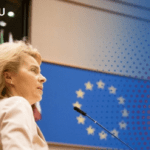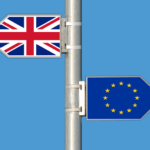The European Commission published a Communication titled “The Path to the Next Multiannual Financial Framework,” outlining the main political and budgetary challenges that will shape the design of the next Multiannual Financial Framework (MFF). It sets the foundation for reflecting on how to adapt the EU’s long-term budget to evolving needs and priorities. In parallel with this Communication, the Commission is also launching a European campaign involving a range of stakeholders, including the governments of Member States, regional entities, and citizens.
A Budget at the Heart of the EU’s Priorities
The European budget supports citizens, farmers, researchers, businesses, and regions across Europe and beyond. It has proven essential in improving the lives of Europeans. Together with NextGenerationEU, it has helped overcome a pandemic and energy crisis, saving millions of jobs during lockdowns and investing in our clean and digital future. The EU budget has also provided unprecedented support to Ukraine and to Europe’s security in light of Russia’s aggressive war.
The next long-term budget, which will start in 2028, will need to solve the conundrum: expectations for the EU to act are constantly rising. For the EU budget to live up to our ambitions and ensure the repayment of NextGenerationEU loans, while maintaining stable financial contributions from Member States, new own resources must be established. Maintaining the status quo is not an option; decisions need to be made. The EU must maximize the impact of every euro spent, focusing on EU priorities and the objectives where EU action is most needed.
New challenges and rising expectations demand that we reconsider how the EU budget functions to adapt it for the future. The goal of a free, democratic, strong, secure, prosperous, and competitive Europe requires a reformed and strengthened EU budget—simpler, more flexible, more focused, and more impactful.
The new approach for a modern EU budget must include a plan for each country with key reforms and investments, designed and implemented in partnership with national, regional, and local authorities. The European Competitiveness Fund should establish sufficient investment capacity to support strategic sectors and critical technologies. Additionally, renewed funding for external action should have a deeper impact, be more specific, and align with strategic interests, thus contributing to a new foreign policy. The budget must also include additional safeguards to protect the rule of law. Furthermore, the EU budget must be able to count on modernized revenues to ensure sufficient and sustainable funding for our common priorities.
President von der Leyen stated: “The next long-term budget will strengthen our shared vision of the Union for the future. It will translate our common priorities into tangible actions that will make a difference for millions of citizens, businesses, regions, and researchers. Therefore, we invite all Europeans to share their views through public consultations, the European Citizens’ Panel, or the Citizens’ Participation Platform, encouraging them to design a modern, ambitious, and reinforced budget. Our challenges are also common goals: together we are stronger.”
Joint Design of the Budget
The EU budget benefits all Europeans, and they should have the opportunity to express their views on the future of the EU budget. That is why the Commission is today launching a series of public consultations inviting stakeholders and citizens to share their opinions on the future EU budget and the policies it should support. The consultations will be open for at least twelve weeks. They can be accessed through the following links:
- Execution of EU funds with Member States and regions
- EU funding for competitiveness
- EU funding for external action
- EU funding for education, training, cross-border solidarity, youth, media, culture and creative sectors, values, and civil society
- EU funding for civil protection, crisis preparedness, and response
- EU funding for the single market and cooperation between national authorities
- Performance of the EU budget
A citizens’ panel will bring together 150 Europeans to debate and formulate concrete recommendations for the next EU budget. This will be accompanied by an online platform that offers everyone the opportunity to participate in the debate. Additionally, Commissioner Serafin is embarking on a Tour of Europe throughout 2025 to hold individual consultations with Member State authorities, regional stakeholders, and beneficiaries of the EU budget.
The Commission welcomes participation in the reflections on the future EU budget from all EU institutions and bodies, as well as partners who implement the EU budget.
The Commission will present its formal proposal for the next multiannual financial framework in July 2025, aiming for an agreement in time for its implementation in January 2028.
Background
The EU budget is crucial to achieving the EU’s priorities. Through resource pooling, solidarity, and support to all EU countries, its citizens, and other nations, the EU budget strengthens Europe’s economy and geopolitical position.
The EU has an annual budget cycle and a long-term budget, known as the Multiannual Financial Framework. This multiannual planning makes EU spending predictable, especially for multi-year projects and policies.
In accordance with Article 312 of the Treaty on the Functioning of the European Union, the Multiannual Financial Framework covers a period of at least five years. Its overall objective is to ensure the orderly evolution of the EU’s expenditure within the limits of its own resources. Based on a proposal from the Commission, the Multiannual Financial Framework is adopted unanimously by the twenty-seven EU Member States in the Council, after approval by the European Parliament.
The current Multiannual Financial Framework runs from January 1, 2021, to December 31, 2027, with a total expenditure of EUR 1,211 billion. It is accompanied by NextGenerationEU, a temporary recovery instrument of up to EUR 807 billion that boosts the European economy and makes our societies stronger and more resilient in response to the coronavirus pandemic.
More information European Commission.







Leave a Reply